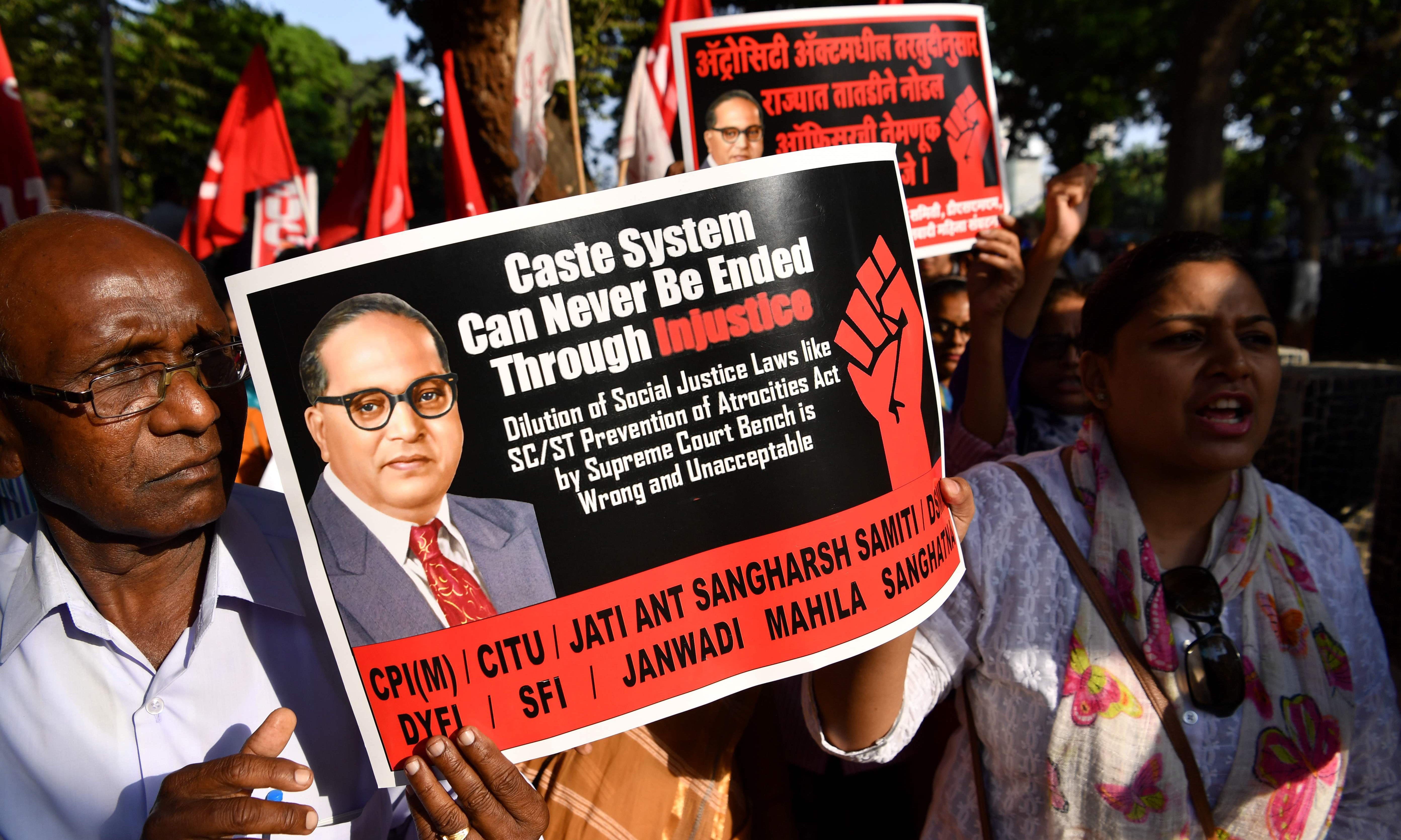At least four people died in street battles and widespread protests by Indian low-caste groups enraged by what they consider the undermining of a law protecting their safety, police said on Monday.
Clashes with police, attacks on buses and government buildings, and blocked trains and roads were reported across five Indian states.
The four dead were in the central state of Madhya Pradesh, according to Rishi Kumar Shukla, director general of the state police. He insisted however that events had been brought “under control”.
One of the dead was in Gwalior. “A curfew has been imposed in parts of the city and the protesters are still on the ground,” Anshuman Yadav, police inspector general for Gwalior, told AFP.
There were media reports of more deaths in Morena district of Madhya Pradesh, but police could not immediately confirm fatalities.
Local media reports said that at least one more person had died in the western state of Rajasthan.
“I can't confirm the death but two or three people were possibly hit by bullets during the clashes,” Rahul Prakash, superintendent of police in Alwar, around 100 miles from the Rajasthan capital Jaipur, told AFP.
Trouble was also reported in the capital New Delhi, and Uttar Pradesh, Punjab and Bihar states.
The “Bharat Bandh” (India shutdown) was called by groups representing the Dalits, formerly known as untouchables, who make up 200 million of India's 1.25 billion population and are at the bottom of the caste hierarchy.
They are angry at a Supreme Court ruling that banned the automatic arrest of the accused in cases under a special law to protect marginalised groups who suffer widespread discrimination.
The 1989 Scheduled Castes and Scheduled Tribes (Prevention of Atrocities) Act was intended to guard against the harassment of Dalits and other groups.
Rajnath Singh, India's home minister, called for calm.
“The government is appealing against the court order but it is a responsibility of everyone including all political parties to ensure peace,” Singh told journalists in Delhi, where the Dalit protests caused traffic chaos.
Across the affected states, groups hurled stones, bottles and burning sticks at police and set buses on fire. Some sat on railway lines to block trains.
Reports said a police outpost near Meerut in Uttar Pradesh was set on fire.
Dalit men hurled stones at police and security personnel. Police in Azamgarh district told AFP that public buses were set on fire by protesters.
Dalits are among the most marginalised groups in India, where caste discrimination is outlawed but remains widespread.
Last week a young Dalit farmer in Gujarat was beaten to death for owning a horse, which is seen as a symbol of power and wealth.












































